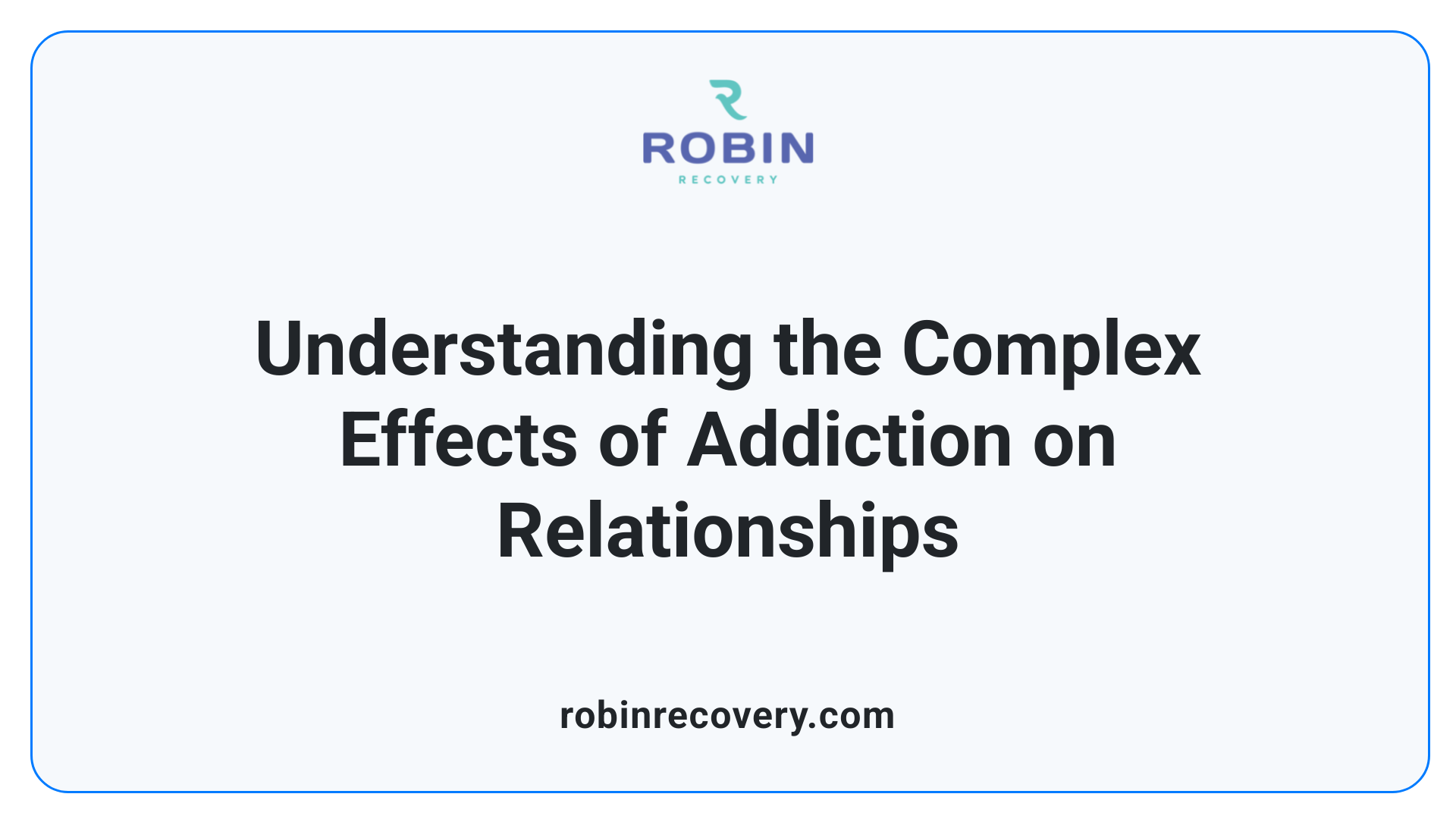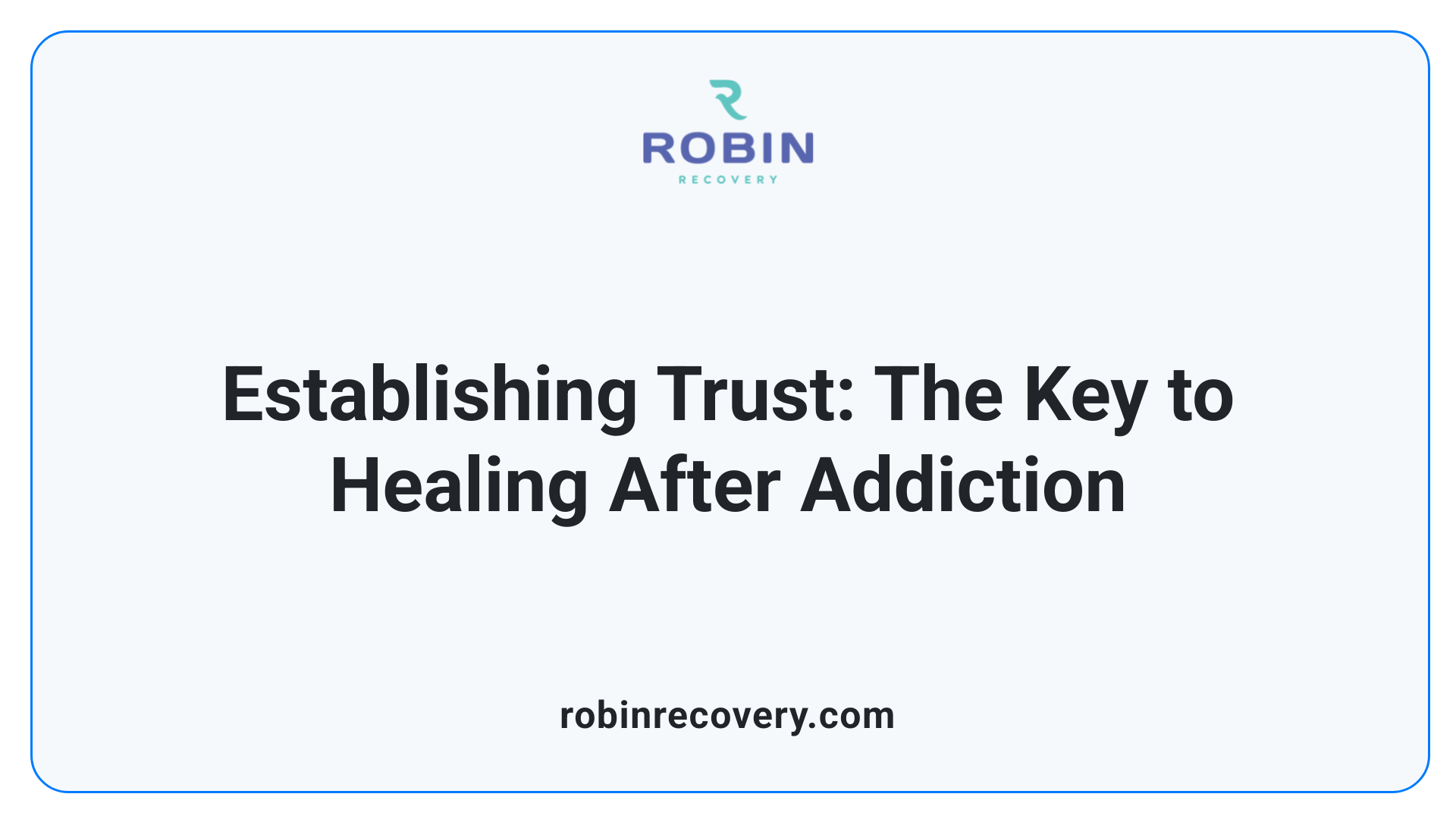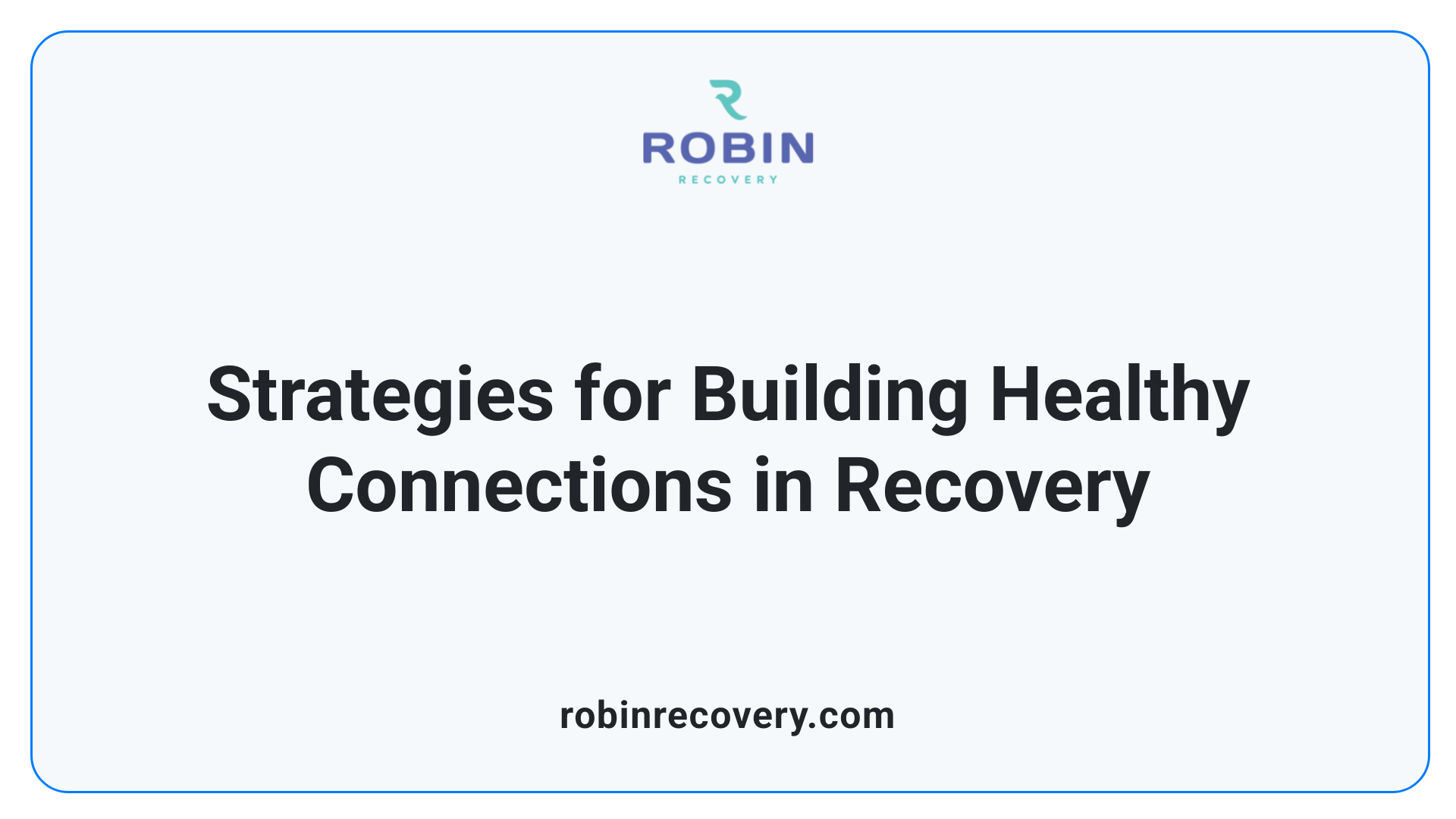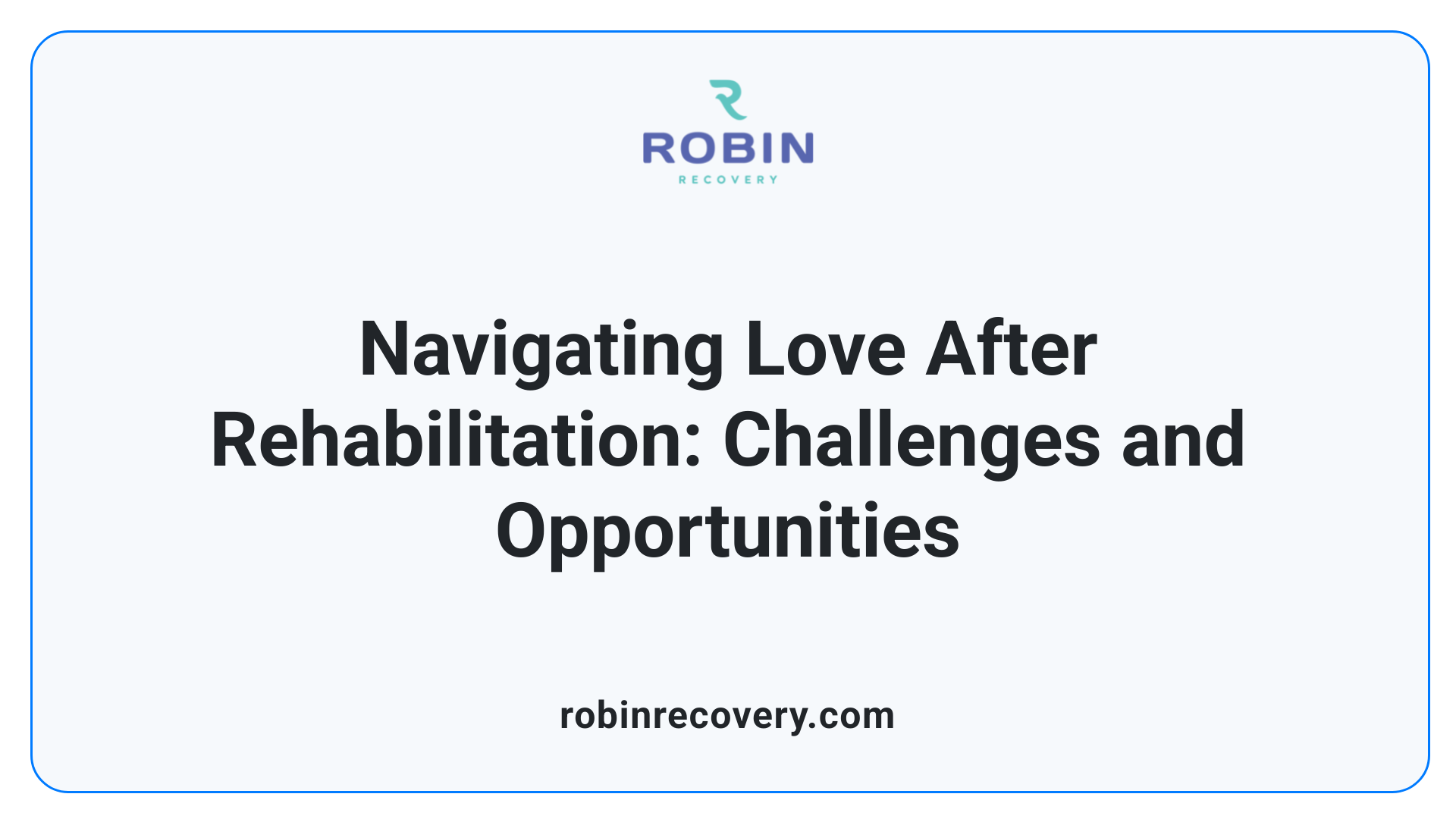How to Foster Healthy Relationships Post-Recovery

Understanding the Impact and Path to Healthy Connections
Recovery from addiction is a profound journey that touches every corner of an individual's life. Crucially, it affects how relationships are formed, sustained, and rebuilt. This article provides insights and guidance on how to foster healthy relationships post-recovery, emphasizing the importance of trust, communication, and self-care in creating meaningful and supportive connections.
The Impact of Addiction and Recovery on Relationships

How does recovering from addiction impact relationships?
Recovering from addiction can profoundly impact relationships in both positive and negative ways. Addiction often results in significant strain on relationships, characterized by trust issues, conflicts, and emotional distress. Family instability, dishonesty, and sometimes even violence can emerge as a consequence of substance misuse.
Positive Changes in Relationships Post-Recovery
However, the journey of recovery offers a unique opportunity for healing and growth. As individuals commit to sobriety, they often find that healthier habits take root. Open communication, emotional growth, and effective boundary-setting become pivotal in restoring relationships. Positive shifts include:
- Improved Communication: Clear and honest dialogues help partners express needs and concerns effectively.
- Emotional Support: Healthy relationships built on empathy and understanding encourage accountability, reducing the risk of relapse.
- Personal Accountability: Partners learn to support each other’s recovery while respecting personal space and emotional needs.
Role of Personal Development in Recovery
Personal growth plays a crucial role in recovery, with self-reflection and self-love forming the foundation for entering new relationships. Early recovery, typically involving a deep understanding of one’s triggers and values, is essential for establishing healthy connections. Individuals are encouraged to:
- Build self-awareness: Recognizing personal values and emotional stability aids in identifying unhealthy patterns.
- Develop Emotional Skills: Managing emotions becomes vital, helping prevent relationship stress from leading to relapse.
- Enhance Trust: Reliability and consistency foster a sense of security, allowing for the rebuilding of lost faith among loved ones.
Overall, recovery provides not only the chance to mend damaged relationships but also to cultivate lasting, supportive connections.
Trust: The Cornerstone of Post-Recovery Relationships

What is the most important factor in fostering healthy relationships post-recovery?
The most important factor in fostering healthy relationships post-recovery is trust. Trust serves as the foundation for a strong relationship, enabling individuals to prioritize each other's well-being and fostering vulnerability. High-quality relationships, characterized by interdependence and emotional connection, rely on established trust developed through diagnostic situations where partners demonstrate their reliability and willingness to sacrifice for one another.
Strategies for cultivating trust
Building trust in recovery involves several strategies:
- Transparency: Be honest about your recovery journey, sharing both challenges and successes. This openness fosters understanding and empathy.
- Consistency: Show up for your partner reliably, keeping promises and maintaining steady behavior to demonstrate commitment.
- Effective Communication: Engage in active listening, expressing thoughts and emotions clearly to avoid misunderstandings.
- Apologize Sincerely: Take accountability for past mistakes and focus on making consistent efforts to regain trust.
Influence of trust on recovery and relationships
Trust not only enhances relationship satisfaction but also promotes resilience against future challenges. When individuals feel secure in their relationships, they tend to experience higher self-esteem and emotional stability. This strong foundation supports recovery efforts by reducing the likelihood of relapse, as positive relationships can shield against stressors that may trigger substance use. Thus, trust acts as a crucial element in nurturing healthy connections, sustaining both recovery and personal growth.
Strategies for Cultivating Supportive Relationships

What are some strategies for building supportive relationships after addiction?
Building supportive relationships after addiction requires a multifaceted approach. The following strategies can help individuals cultivate healthy connections:
- Effective Communication
- Share feelings openly: Honesty creates trust and understanding.
- Active listening: Engagement in conversations fosters connection and empathy.
- Participating in Support Groups
- Join networks like Alcoholics Anonymous (AA) or Narcotics Anonymous (NA): These groups offer a sense of community and shared experiences, helping individuals navigate their recovery journeys together.
- Engage in group activities: Building bonds through shared interests enhances connection and support.
- Maintaining Healthy Boundaries
- Define personal boundaries: Setting clear expectations helps protect mental health and reduces the risk of codependency.
- Practice self-care: Prioritize personal well-being to ensure you can support others effectively.
These strategies not only promote personal growth but also strengthen existing relationships, making recovery journeys more sustainable and fulfilling. By integrating these practices, individuals enhance their ability to develop and maintain supportive environments that bolster their sobriety.
Can Love Last After Rehab?

Can a relationship survive after rehab?
Absolutely, relationships can survive and even thrive post-rehab. Recovery encourages personal growth leading to improved emotional intelligence and communication skills, essential for maintaining happy, healthy relationships.
Challenges and opportunities for romantic relationships post-rehab
Transitioning out of rehab can present numerous challenges:
- Trust Issues: Rebuilding trust can be tough, as past behaviors linger in relationships.
- Emotional Dependency: Partners may unintentionally become overly reliant on one another, complicating recovery efforts.
- Communication Barriers: Differences in how each partner navigates recovery can create misunderstandings.
However, these challenges also provide opportunities to grow together. Couples can learn to support each other by:
- Practicing Open Communication: Discuss feelings, triggers, and recovery goals openly.
- Building Strong Support Networks: Engaging with mutual-help groups like AA or NA can provide external support that benefits both partners.
Strategies for relationship survival
To foster a healthy relationship post-rehab, consider the following strategies:
- Set Healthy Boundaries: Define what is appropriate for your recovery process to protect mental health.
- Cultivate Self-Love: Engage in self-care practices to bolster your self-esteem and prevent codependency.
- Celebrate Progress: Acknowledge milestones in your recovery and relationship to enhance motivation.
Personal growth enhancing relational outcomes
The process of recovery often leads to new self-awareness. Knowing personal values enables individuals to enter relationships from a place of wholeness.
- Emotion Management: Practice emotional skills to navigate ups and downs without resorting to substances.
- Empathy and Forgiveness: Integrate these qualities to deepen connection and promote healing.
- Engagement in Shared Activities: Find common interests that reinforce bonds and camaraderie.
By focusing on individual growth and prioritizing recovery, couples can navigate the complexities of love after rehab, guiding them towards long-term, healthy relationships.
Preparing Emotionally for Romantic Connections in Recovery
How can someone emotionally prepare for a romantic relationship in recovery?
Emotional preparation for a romantic relationship in recovery involves several key components. First, focusing on self-awareness and emotional stability is essential. Individuals should work on managing their emotions without resorting to substances. This self-awareness allows them to understand their triggers and establish appropriate responses.
Prioritizing self-care routines while maintaining sobriety is crucial. Ideally, it is advisable to wait at least a year after completing recovery before seeking romantic connections. This waiting period helps to prevent co-dependency and relationship stress that could jeopardize recovery goals.
Open communication about triggers, boundaries, and recovery experiences with a potential partner is key to fostering a healthy connection. This allows both parties to understand each other's journeys and the challenges they may face together.
Additionally, building a supportive network of platonic friendships is paramount. Strong, healthy relationships with peers can provide stability and emotional support, serving as a solid foundation before entering into romantic involvement. Engaging in activities with sober friends not only reinforces accountability but also nurtures personal growth in a safe environment.
In summary, emotional preparation for a new relationship in recovery revolves around self-awareness, robust self-care practices, and establishing a supportive network, setting the stage for success in potential romantic endeavors.
The Role of Self-Care in Post-Rehabilitation Relationships
What role does self-care play in post-rehabilitation relationships?
Self-care plays a vital role in post-rehabilitation relationships by fostering mental, emotional, and physical well-being. By prioritizing self-love and developing self-compassion, recovering individuals can facilitate healing, allowing themselves to forgive past mistakes and move forward.
Effective communication is an essential aspect of self-care, especially in the context of recovery. Openly discussing feelings, expectations, and triggers with loved ones can help rebuild trust, which is crucial after the turmoil of addiction.
What practices enhance self-care?
To enhance self-care in recovery, consider adopting the following practices:
- Daily Meditation: Encourages mindfulness and awareness, helping to manage stress.
- Regular Exercise: Boosts physical health and releases endorphins that improve mood.
- Consistent Therapy: Provides a safe space for emotional processing and growth.
- Journaling: Helps reflect on experiences, enabling better understanding of personal triggers.
- Support Groups: Engaging with those who understand the journey can foster a sense of belonging and accountability.
How does self-care impact relationship health?
Prioritizing self-care strengthens relationships by improving emotional availability and enhancing communication with loved ones. As individuals learn to manage their well-being, they become more present for family and friends, creating a supportive environment for everyone involved.
Moreover, practicing self-kindness allows for healthier interactions, as it cultivates empathy and patience in relationships. These factors contribute significantly to sustained sobriety and mutual respect within interpersonal connections.
The Value of Professional Support in Rebuilding Connections

Is professional help beneficial for rebuilding relationships in recovery?
Yes, seeking professional help is a powerful asset in the journey of rebuilding relationships after addiction. Therapy or counseling provides essential tools that can enhance communication and emotional understanding. This holistic approach enables individuals and families to confront the emotional complexities stemming from addiction while fostering deeper connections, ultimately leading to restored trust.
Benefits of therapy or counseling
Therapy can take various forms, such as individual counseling, family therapy, or couples therapy. Each has unique benefits:
- Individual Counseling: Focuses on the recovering person, helping them address personal triggers and emotional health.
- Family Therapy: Aims to heal family dynamics affected by addiction, promoting understanding among family members.
- Couples Therapy: Helps partners work through conflicts and learn effective communication strategies to strengthen their bond.
Tools for enhancing communication and understanding
Professional support teaches vital tools like:
- Active Listening: Engaging fully in conversations ensures all parties feel understood.
- Expressing Needs: Counseling encourages individuals to be open about their needs and boundaries.
- Conflict Resolution Strategies: These tools help partners navigate disagreements healthily and constructively.
Access to local support systems
Engaging with resources, such as SAMHSA’s National Helpline, connects individuals to local support systems tailored to meet their needs. These networks include:
- Support groups like Alcoholics Anonymous (AA) and Narcotics Anonymous (NA).
- Therapists specializing in addiction recovery and relationship issues.
- Community resources for ongoing support in healing and establishing healthy relationships.
Ultimately, professional support is essential for facilitating healing and fostering healthier relationship patterns in recovery, creating a foundation for lasting change.
Setting Healthy Boundaries and Building Emotional Skills
Importance of Boundaries in Preventing Relapse
Setting healthy boundaries is crucial for individuals in recovery. These boundaries protect their sobriety and foster mutual respect in relationships. They help define what is acceptable behavior from others and what isn't, which prevents emotional dependency and potential triggers. Having established boundaries allows recovering individuals to focus on their own health without guilt, ensuring stability in their recovery journey.
Tools for Emotional Skill Development
Building emotional skills is equally important in managing relationships during recovery. Some effective strategies include:
- Self-reflection: Understanding past behaviors assists in avoiding prior mistakes in new relationships.
- Effective communication: Practicing honesty and active listening enhances understanding and prevents misunderstandings.
- Empathy and forgiveness: These qualities deepen connections and facilitate healing.
Impact on Maintaining Long-term Sobriety
Strong emotional skills and clear boundaries significantly contribute to long-term sobriety. Individuals who prioritize their recovery and invest time in developing these skills tend to have healthier relationships. The ability to express needs, manage conflicts, and establish respect can mitigate the risks of relapse. With consistent effort, individuals in recovery can cultivate an environment that supports their journey, ultimately leading to more fulfilling connections.
Strengthening Your Journey Through Healthy Relationships
Fostering healthy relationships post-recovery is not only about mending ties but also about building bridges to new, supportive connections. This journey involves self-awareness, trust, effective communication, and a deep commitment to self-care. By understanding the importance of these elements and actively working on them, individuals can not only enhance their personal recovery journey but also fortify their relationships, creating a resilient support system capable of lasting through life's challenges. With patience, empathy, and dedication, the path to secure and fulfilling relationships is well within reach for those recovering from addiction.
References
- Building Healthy Relationships in Recovery - Resurge
- Beginning a New Relationship After Recovery from Substance Misuse
- Healthy Love After Addiction: Relationships in Recovery
- Navigating Relationships After Mental Health Recovery
- Building Strong and Healthy Relationships Post-Rehabilitation
- Love and Recovery: Navigating Relationships in Sobriety
- 5 Tips for Building Healthy Relationships in Recovery From Addiction
- Recovering Alcoholics and Relationships: Tips for Building Healthy ...
- Building Healthy Relationships After Treatment
